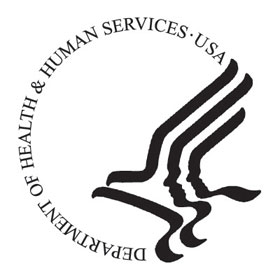Recently, the United States Department of Health and Human Services (HHS) and the Centers for Medicare and Medicaid Services (CMS) issued a final rule under Section 1557 of the Affordable Care Act, advancing protections against discrimination in health care. The final rule focuses on reducing language access barriers, expanding physical and digital accessibility, and reducing bias in health technology.
The final rule pulled from more than 85,000 public comment submissions and utilized HHS’ enforcement experience as well as developments made in civil rights law.
Under the new final rule, HHS’ health programs and activities will be held to the same nondiscrimination standards as recipients of Federal financial assistance and Medicare Part B payments will be considered Federal financial assistance for the purposes of triggering civil rights laws enforced by the Department. This will mean health care providers and suppliers that receive Part B funds will be prohibited from discriminating on the basis of race, color, national origin, age, sex, or disability.
Under the final rule, discrimination on the basis of gender identify and sexual orientation is prohibited. Individuals will be required to be treated consistent with their gender identity and covered parties will be prohibited from categorically excluding gender-affirming care.
The final rule also requires health care providers, insurers, grantees, and others, to proactively let the public know that language assistance services are available at no cost to patients as are accessibility services. Additionally, covered health programs and activities that are offered via telemedicine are also required to be accessible to individuals with limited English proficiency and disabled individuals.
The final rule also discusses the proliferation of artificial intelligence (AI), noting that nondiscrimination in health programs and activities continues to apply to the use of AI, clinical algorithms, predictive analytics, and other similar tools. Those who are covered by the rule must take steps to identify and mitigate discrimination when using AI and other forms of decision support tools for treating patients.
The final rule will become effective July 5, 2024.
“Today’s rule is a giant step forward for this country toward a more equitable and inclusive health care system, and means that Americans across the country now have a clear way to act on their rights against discrimination when they go to the doctor, talk with their health plan, or engage with health programs run by HHS,” said HHS Secretary Xavier Becerra. “I am very proud that our Office for Civil Rights is standing up against discrimination, no matter who you are, who you love, your faith or where you live. Once again, we are reminding Americans we have your back.”
“Section 1557 is critical to making sure that people in all communities have a right to access health care free from discrimination. Today’s rule exemplifies the Biden-Harris Administration’s ongoing commitment to health equity and patient rights,” said HHS Office of Civil Rights (OCR) Director Melanie Fontes Rainer. “Traveling across the country, I have heard too many stories of people facing discrimination in their health care. The robust protections of 1557 are needed now more than ever. Whether it’s standing up for LGBTQI+ Americans nationwide, making sure that care is more accessible for people with disabilities or immigrant communities, or protecting patients when using AI in health care, OCR protects Americans’ rights.”
“CMS is steadfast in our commitment to providing access to high-quality, affordable health care coverage for millions of people who represent the vibrant diversity that makes America strong,” said CMS Administrator Chiquita Brooks-LaSure. “Today’s rule is another important step toward our goal of health equity – toward the attainment of the highest level of health for all people, where everyone has a fair and just opportunity to attain their optimal health.”

